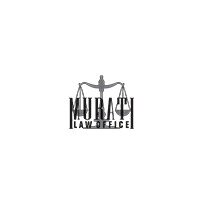Best Tax Lawyers in Ulcinj
Share your needs with us, get contacted by law firms.
Free. Takes 2 min.
List of the best lawyers in Ulcinj, Montenegro
About Tax Law in Ulcinj, Montenegro
Ulcinj, a coastal town in Montenegro, is governed by the same tax laws applicable throughout the country. The Montenegrin tax system covers various forms of taxation including income tax, corporate tax, value-added tax (VAT), and property tax. The taxation framework is designed to boost economic growth while ensuring fairness and compliance. Understanding these local tax regulations is crucial for individuals and businesses alike, and often requires both local and national perspectives.
Why You May Need a Lawyer
Individuals and businesses may seek legal assistance in tax-related matters for several reasons. Common situations include managing complex tax obligations, navigating the annual tax filing process, handling property-related tax concerns, or responding to audits and investigations by the Montenegrin Tax Administration. Legal professionals can provide invaluable support to ensure compliance, optimize tax liabilities, and address disputes or litigation with the tax authorities.
Local Laws Overview
The Montenegrin tax system comprises several essential components:
- Income Tax: Both residents and non-residents are subject to income tax on their Montenegrin-sourced income. The standard rate is progressive, applying more heavily to higher earnings.
- Corporate Tax: Businesses in Ulcinj and across Montenegro pay a flat corporate tax rate on profits.
- Value-Added Tax (VAT): Applied to most goods and services, the standard VAT rate is set at 21%, with a reduced rate for certain essentials.
- Property Tax: Property ownership in Ulcinj involves annual taxes based on the value and use of the property.
Compliance and staying informed about any legislative changes is critical for all taxpayers.
Frequently Asked Questions
What is the standard income tax rate in Montenegro?
The personal income tax rate in Montenegro is progressive, with rates varying based on income bracket.
Do foreigners have to file taxes in Ulcinj?
Foreigners must file taxes on any income sourced within Montenegro.
How is corporate tax calculated?
Corporate tax is levied at a flat rate on the profits of companies operating in Montenegro.
What are the documents required for tax filing?
Essential documents include income statements, deductions, business expenses, and any relevant receipts.
How can I reduce my tax liability legally?
Engage with a tax professional to explore options such as tax credits, allowable deductions, and strategic financial planning.
Are there any VAT exemptions?
VAT exemptions apply to certain goods and services, primarily essentials. Consult local tax guidelines for specifics.
How is property tax assessed?
Property tax is assessed based on the property's location, type, and usage.
What are the penalties for tax evasion?
Penalties for tax evasion can include significant fines and, in extreme cases, criminal prosecution.
Can I appeal a tax decision?
Yes, individuals can contest tax decisions through legal appeal processes.
How often do tax laws change?
Tax laws can change annually, with updates often introduced in fiscal policy changes. Staying informed is crucial.
Additional Resources
For further assistance, consider consulting the following resources:
- Montenegrin Tax Administration: Offers guidance on tax laws and filing processes.
- Local legal advisors and tax consultants in Ulcinj: Provide personalized legal help and tax planning services.
- Government portals: Offer the latest updates and comprehensive details on local regulations.
Next Steps
If you require legal assistance concerning tax matters in Ulcinj, Montenegro, follow these steps:
- Identify Your Needs: Clarify your specific tax concerns or questions.
- Consult a Professional: Reach out to a licensed tax lawyer or consultant with expertise in Montenegrin tax law.
- Gather Documentation: Compile all necessary financial records and documents for review.
- Schedule a Consultation: Arrange meetings to discuss your situation, and explore potential courses of action.
- Remain Compliant: Ensure timely filing and compliance with all tax obligations to avoid penalties.
Lawzana helps you find the best lawyers and law firms in Ulcinj through a curated and pre-screened list of qualified legal professionals. Our platform offers rankings and detailed profiles of attorneys and law firms, allowing you to compare based on practice areas, including Tax, experience, and client feedback.
Each profile includes a description of the firm's areas of practice, client reviews, team members and partners, year of establishment, spoken languages, office locations, contact information, social media presence, and any published articles or resources. Most firms on our platform speak English and are experienced in both local and international legal matters.
Get a quote from top-rated law firms in Ulcinj, Montenegro — quickly, securely, and without unnecessary hassle.
Disclaimer:
The information provided on this page is for general informational purposes only and does not constitute legal advice. While we strive to ensure the accuracy and relevance of the content, legal information may change over time, and interpretations of the law can vary. You should always consult with a qualified legal professional for advice specific to your situation.
We disclaim all liability for actions taken or not taken based on the content of this page. If you believe any information is incorrect or outdated, please contact us, and we will review and update it where appropriate.








